Cleaning Dishes
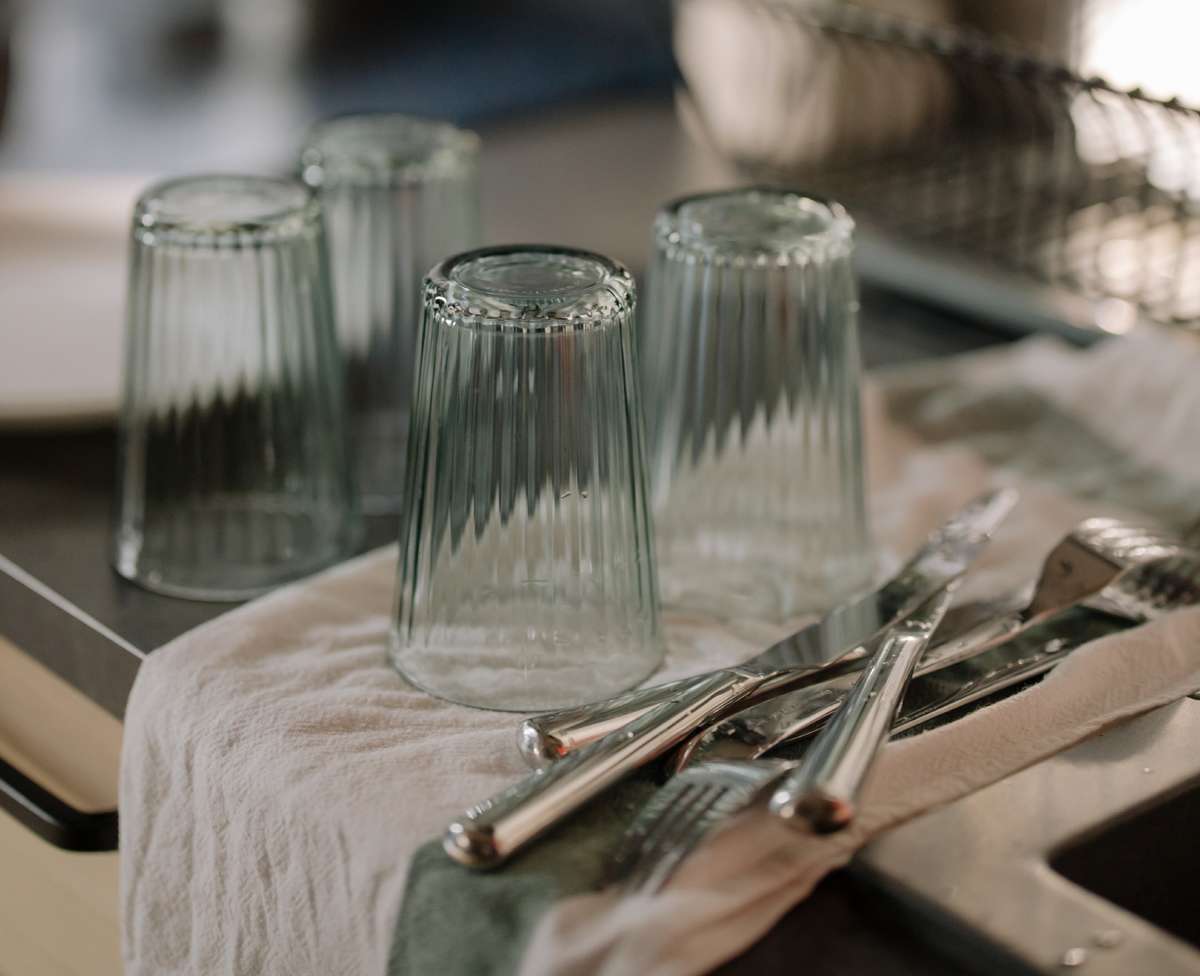
Everything you need to know to clean your dishes, glassware, crystal and more.
Cast Iron Utensils – Care and Cleaning
Seasoning
To season utensils, wash and scour with fine cleanser and steel wool. Wash and dry thoroughly. Rub the inside with unsalted fat or cooking oil and place on top of range on low heat or in oven. (250-300 degrees) for 2 to 3 hours. More fat may be added as needed. When finished, wipe out extra fat, wash in soap, and dry thoroughly.
If not properly seasoned, cast iron pans will drip dark liquid into food.
Care
Store “seasoned” in a dry place. Do not put lids on pans when storing as this may increase moisture buildup.
Cleaning
After use, wipe with paper towels, wash quickly without soaking, in hot suds, rinse; dry thoroughly at once, and wipe with a thin coating of fat or oil.
Cooked-on, Burned-on Food or Grease
Stubborn cooked-on food is best removed by soaking in hot water. Use a plastic scouring pad if necessary. Soak in a solution of 3 tablespoons of washing soda or baking soda per 1 quart of water to remove burned on food or grease. Do not scour off the seasoned finish built up on cast iron over long use. This necessitates re-seasoning of the pan.
Rust may be scoured with fine steel wool or scouring powder but re-seasoning of the utensil will be necessary.
Cleaning China, Crystal, Glassware
To reduce chipping and breakage: Prepare for washing of glassware by having a rubber pad or folded heavy towel in the bottom of the sink or use a plastic dishpan.
If a divided sink is used, have a rubber cover over ridge between both sinks. Never overload sink with glassware. Use mild hand dishwashing liquid detergent, and do not use more than needed to avoid excessive suds.
Hold stemware by the bowl not the stem. With soft cloth under the water, wipe he interior and exterior of the glassware. Rinse in pan of hot clear water, or in second sink of hot water. Allow glass to drain on rack or towel-padded surface. If thoroughly rinsed, they can air dry without dripmarks.
Appearance may be improved or polished if glassware is dried with clean dry lintless cloth.
If by chance there is food dried on surface which does not soak off in washing, never use a metal knife, steel wool scouring pad, or an abrasive cleanser on glass. The least abrasive item in the kitchen suitable for use on glassware is baking soda.
Dishwasher – Cleaning
The interior is self-cleaning. If a stain does occur, clean with dishwasher detergent and water, wearing rubber gloves to protect hands from very alkaline detergent. A heavy film buildup from hard water minerals may be removed by adding vinegar or citric acid crystals (buy at drugstore) to dishwasher without any dishes in it, after it fills with water at start of first cycle. Do this only if appliance manual suggests this is OK, and if the buildup bothers the owner (as it does no harm). However, very hard water can deposit mineral film on dishes, glasses, and flatware, and on dishwasher pump and moving parts; it is wise if water if very hard to install a water softener before installing a dishwasher.
If iron in water causes rust stains inside dishwasher, buy a commercial soluble rust remover (grocery or hardware), checking label to be sure it can be used to dishwasher. Start empty dishwasher on rinse cycle. As it fills, open and add 1/2 cup rust remover. Let dishwasher complete cycle. If iron problem continues so that another treatment is required, better to install an iron filter in water system to remove iron as this will affect dishes, laundry, and all fixtures.
→ Setting Your Dishwasher for The Best Wash Ever
Earthenware, Pottery – Care and Cleaning
Care
Earthenware or pottery is made from baked clay, but does not have as smooth and glassy a surface as china. It conducts heat slowly and evenly, and holds heat well. Glazes may be damaged by sudden temperature changes. It can be damaged by abrasives, and cracked or broken by hard blows.
Cleaning
Modern commercial dinnerware, with the glaze applied over the decorations, can be washed in the dishwasher.
For hand made pottery, check with the maker to find out if it can be washed in the dishwasher. Never use scouring powders or harsh scourers as they will damage the glaze; if food does not come off after a brief soak, a plastic mesh pad may be used. Remove tea stains in cups with a solution of 2 tablespoons chlorine bleach per quart of water; soak 1-2 minutes; rinse promptly.
The Author:
Anne Field, Extension Specialist, with credit to MSU Extension

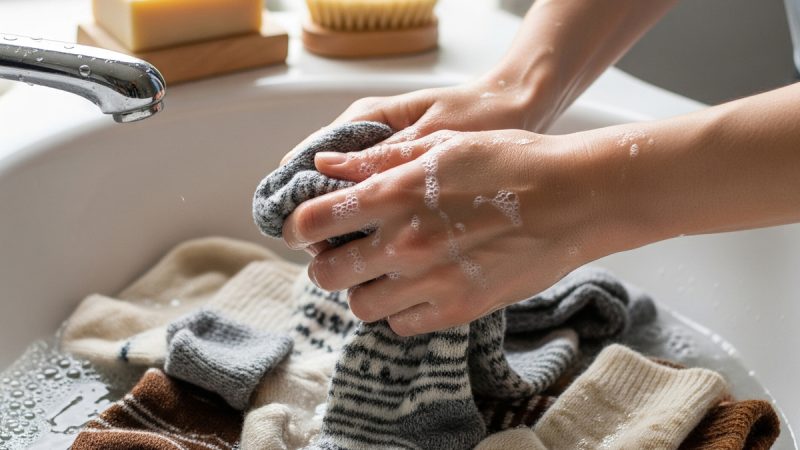
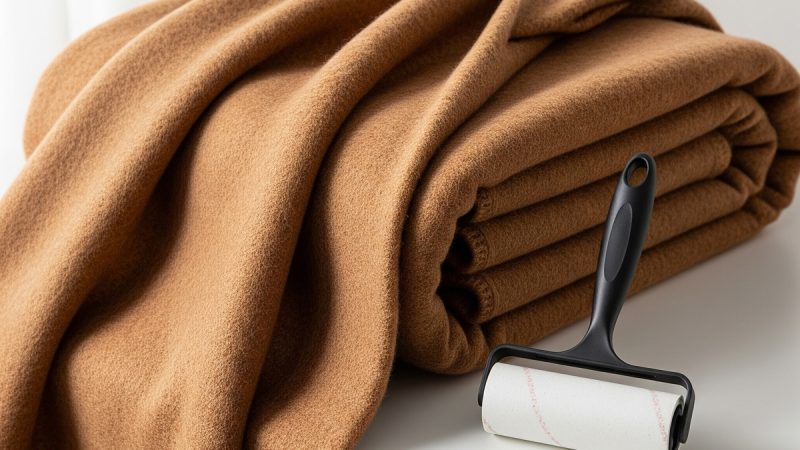
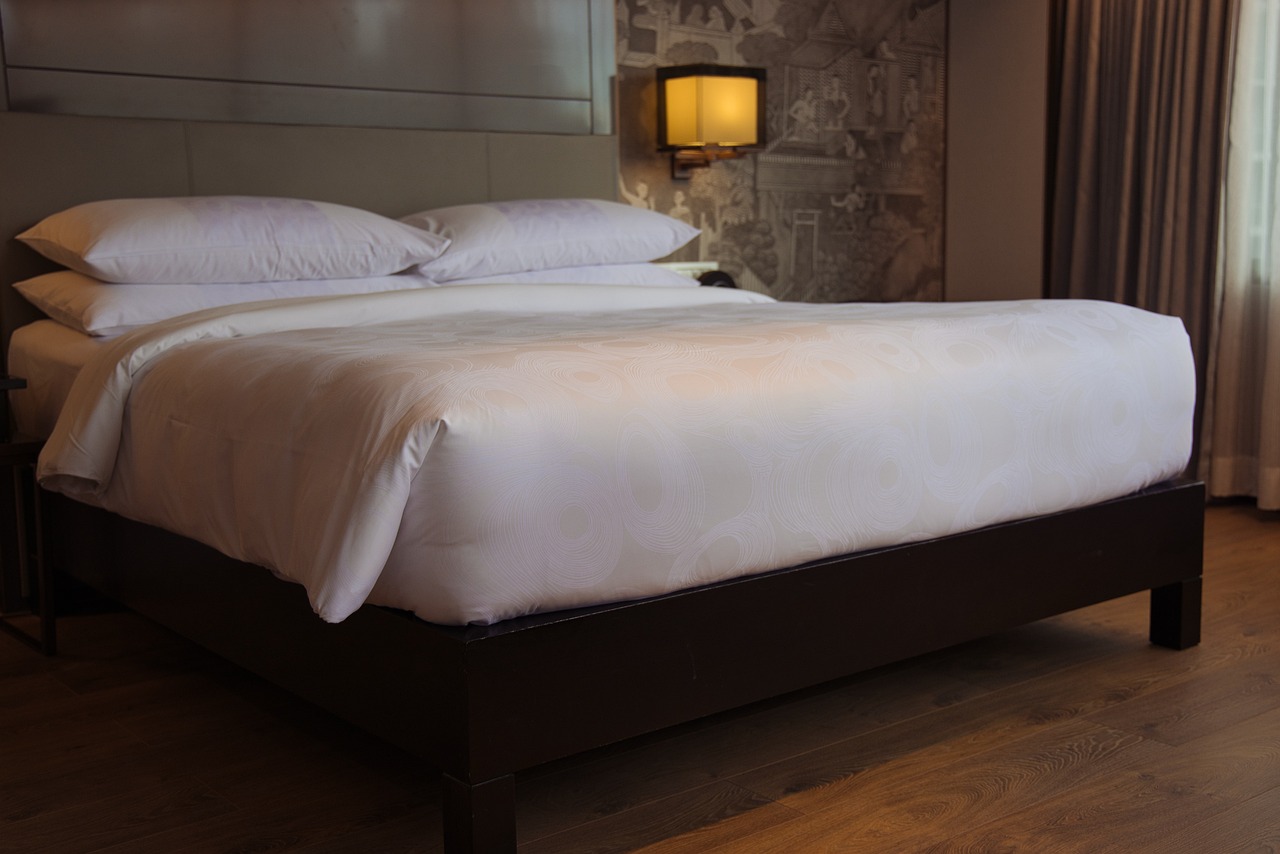
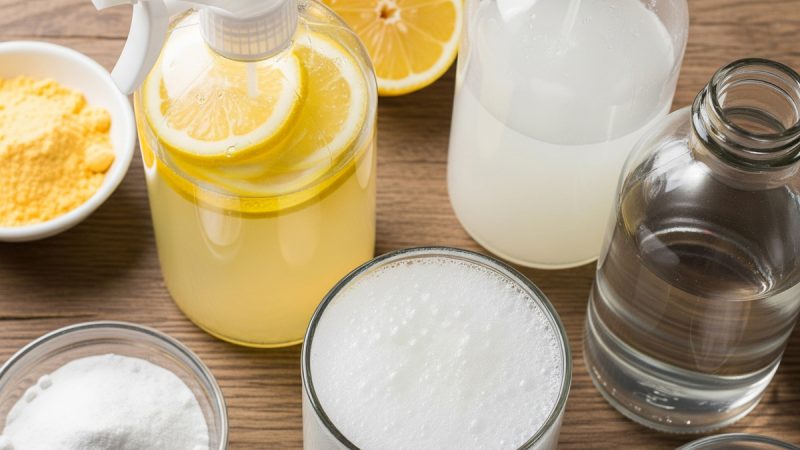
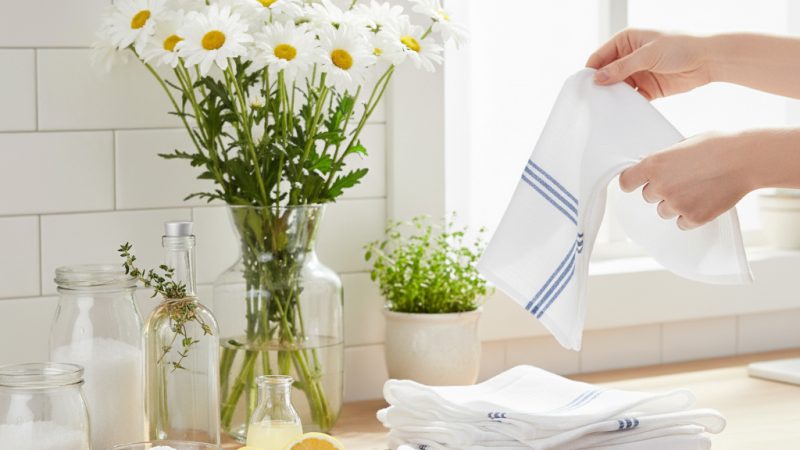
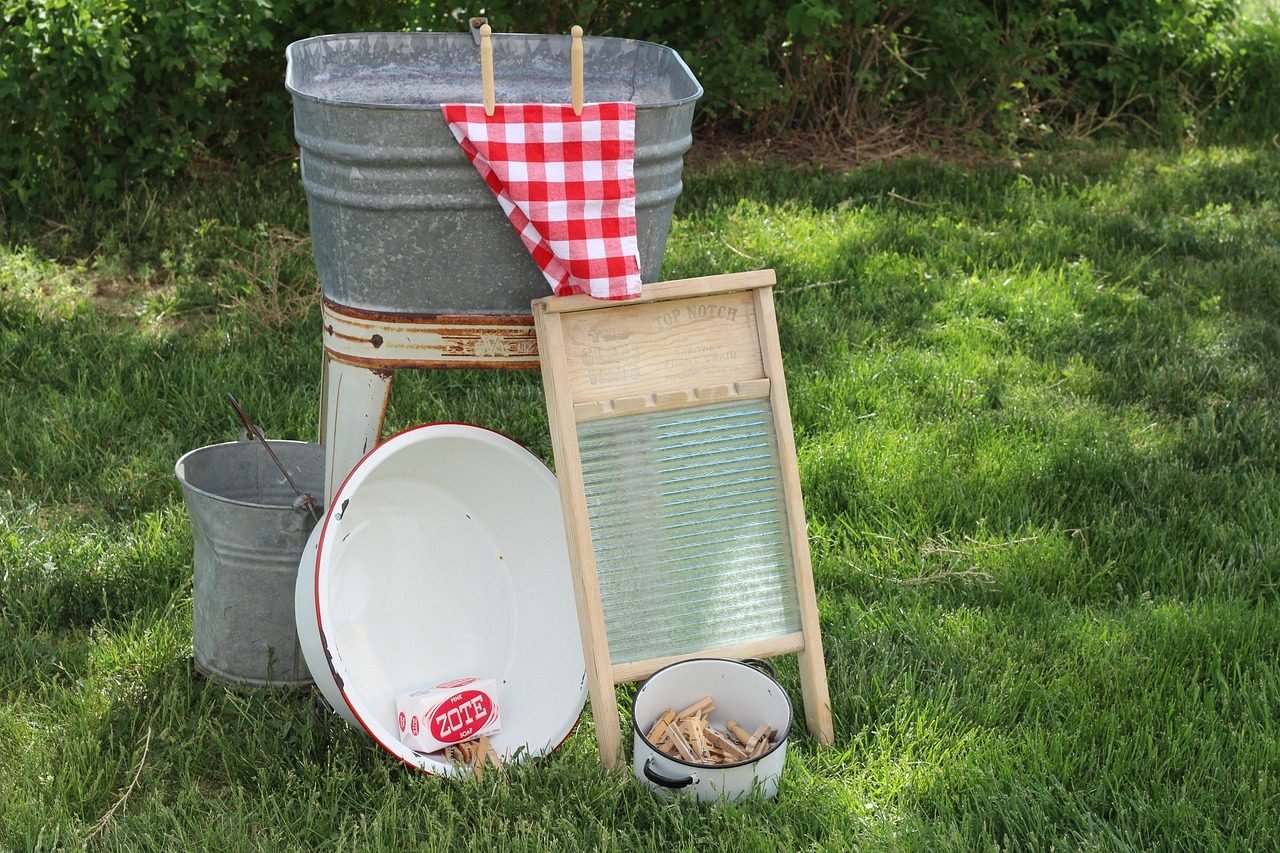
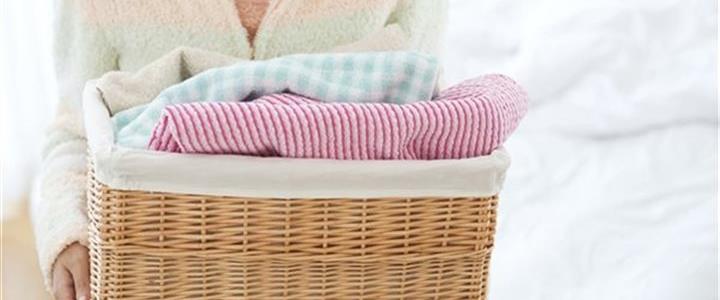
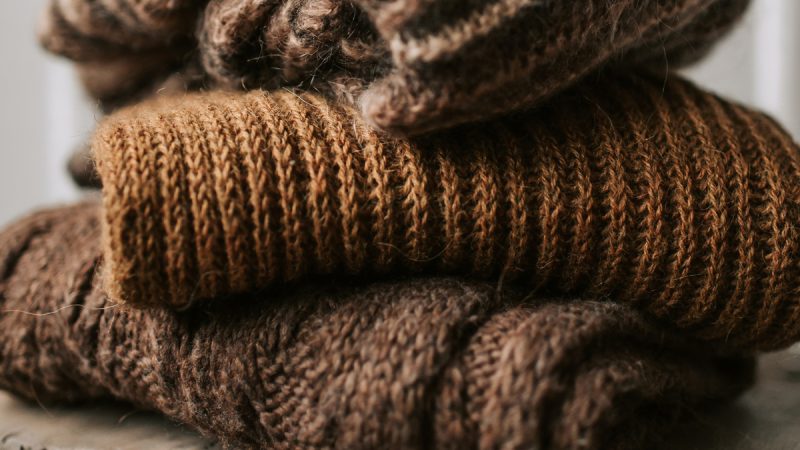
To get those nasty coffee stains out of your stainless steel thermos just put a couple of tablespoons of Cascade (used in dishwashers) in the thermos and add hot water. Put on lid and shake! Let stand for about 15 minutes and say good bye to the stains. This also works on plastic cups used for drinks, ice tea pitchers and many other stains you might have from liquids in a container.
Thank you for sharing this tip! Using Cascade to remove coffee stains from stainless steel thermos and plastic cups sounds like a great solution. I’ll definitely give it a try!
Keep a shaker of baking soda by your sink, great for scouring ceramic baking dishes, plastic tableware, etc. Inexpensive and doesn’t scratch.
Baking soda is always a wonderful household staple to have on hand. I agree that it’s great for scouring ceramic baking dishes and plastic tableware without causing scratches. Thanks for the suggestion!
To clean copper bottomed pots and pans: Use ketchup and a sponge with a soft scrubbing pad.
I have never thought of using ketchup to clean copper bottomed pots and pans. It sounds interesting! I’ll have to try it out and see how it works. Thanks for sharing!
By adding white vinegar to your dishwater you can avoid tea stains all together. Vinegar boosts the power of your dish soap so you can use the least expensive brands. All of your hand washed dishes will sparkle. I’ve noticed little or no spotting also. No need to towel dry.
Adding white vinegar to dishwater to avoid tea stains is a fantastic idea. It’s also good to know that vinegar can enhance the cleaning power of dish soaps, allowing you to use less expensive brands. I’ll definitely give this a go
Blackened Cookware Renewed – For cleaning stainless steel pots, pans, cookie sheets and trays I use a few squirts of Fast Orange that I keep by the sink for my hubbys grimy hands. You’ll be amazed that something gentle enough for hands puts such powerful cleaning on even ancient blackened areas and leaves a spotless shine !
Fast Orange can be found at most hardware stores (Home Depot, Ace, etc…)
Fast Orange for cleaning stainless steel cookware? That’s a unique suggestion! It’s interesting to hear that it can remove blackened areas and leave a spotless shine. I’ll keep an eye out for it the next time I’m at a hardware store. Thanks for sharing!
Tea Stain – Rub tea cups with paste made from table salt and water. Gets rid of tea stains.
Using a paste made of table salt and water to remove tea stains from cups is a great tip. I’ll definitely try this out, as sometimes tea stains can be quite stubborn. Thanks for the suggestion!
I Have found that putting some baking soda and very hot water in a thermos will get it clean as a whistle.
Baking soda and hot water as a cleaning solution for thermos sounds simple and effective. I’ll be sure to give it a try the next time I need to clean my thermos. Thanks for sharing!
A great way to quickly clean sticky greasy plastic ware (Tupperware type products) is to lay down some newspapers, place the plastic ware on it, spray with oven cleaner. Let stand for a few minutes and wash well in hot soapy water. For really tough grease, apply a second time. This really works wonderfully!!
Using oven cleaner to clean sticky greasy plastic ware sounds like a great solution. I’ll keep this in mind for those tough greasy stains. Thanks for the suggestion!
Hard Water Spots and Film – Hard water spots and film on your glasses, dishes, silverware, dishwasher, can be easily cleaned with a product called Lemi Shine. It is also environmentally safe and works fantastic on lime, calcium and iron buildup.
I’ll have to look into Lemi Shine for removing hard water spots and film. It’s good to know that it’s environmentally safe and works well on lime, calcium, and iron buildup. Thanks for recommending!
Denture tablets: I use them to get stains out of coffee thermoses, coffee/tea cups and pots; the water/mineral lines from vases and spills from under plant saucers. Put in water to cover the stain/line, let soak as long as you want, then rinse. If the water/mineral line doesn’t go away with the tablets, then a short soak with vinegar will dissolve the minerals. Rinse and they are as good as new, plus the minty tablets make the drain smell good for a few minutes.
Using denture tablets to remove stains from coffee thermoses, cups, and pots is an interesting tip. Thanks for sharing your suggestion!